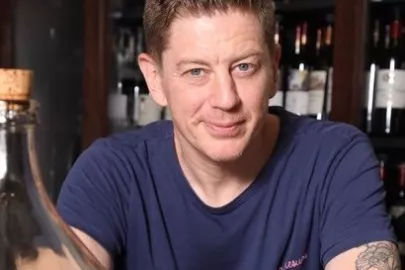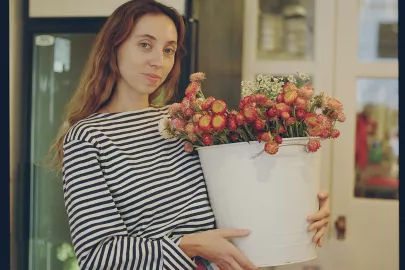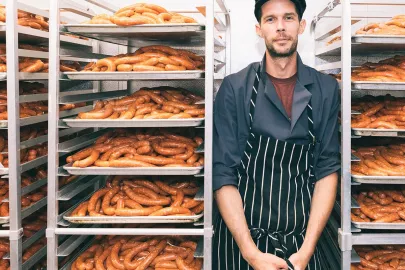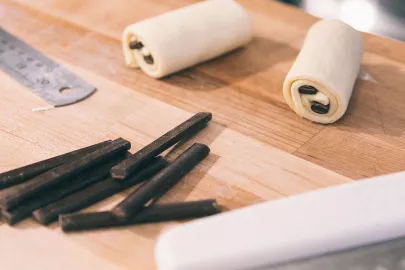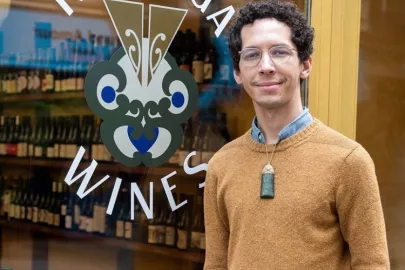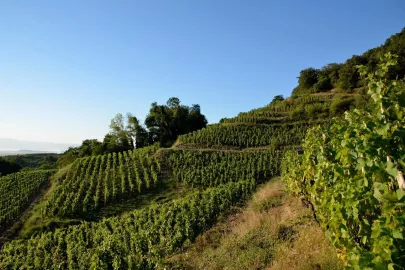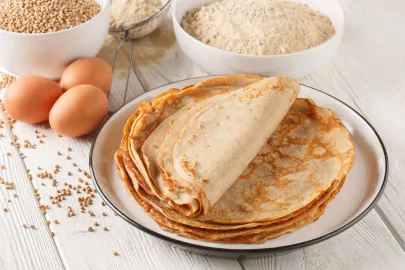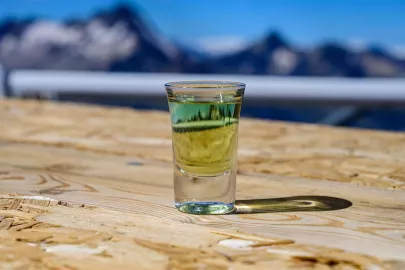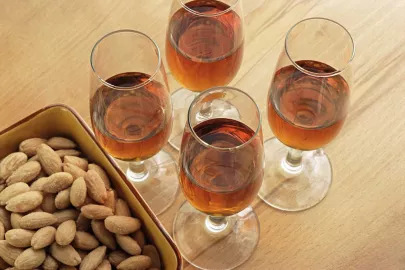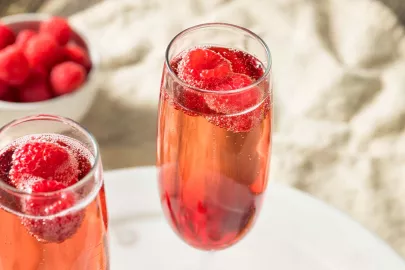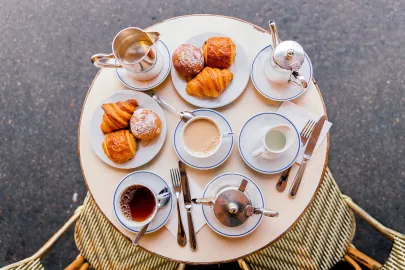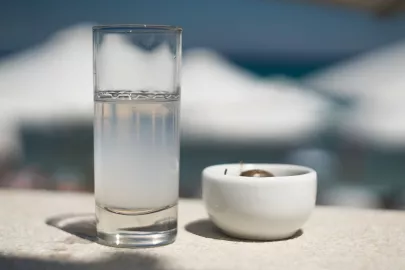Swapping a life in the States for the glamorous streets of Paris is usually what the ‘expat in France’ image evokes. Though for some, rural life in the countryside is actually the preferred route. Native Texan Nancy Kerschen followed her heart and traded in her southern roots for the vines of the Northern Rhône to fulfill her viticultural dreams. Today, Kerschen finds herself with immense international renown within the food and beverage industry, as well as twin daughters, a French husband, and successful expat life in the heart of the world’s unofficial Syrah mecca. Get to know more about Nancy and her winemaking ventures, bilingual household, and more through this edition of Expat Diaries.
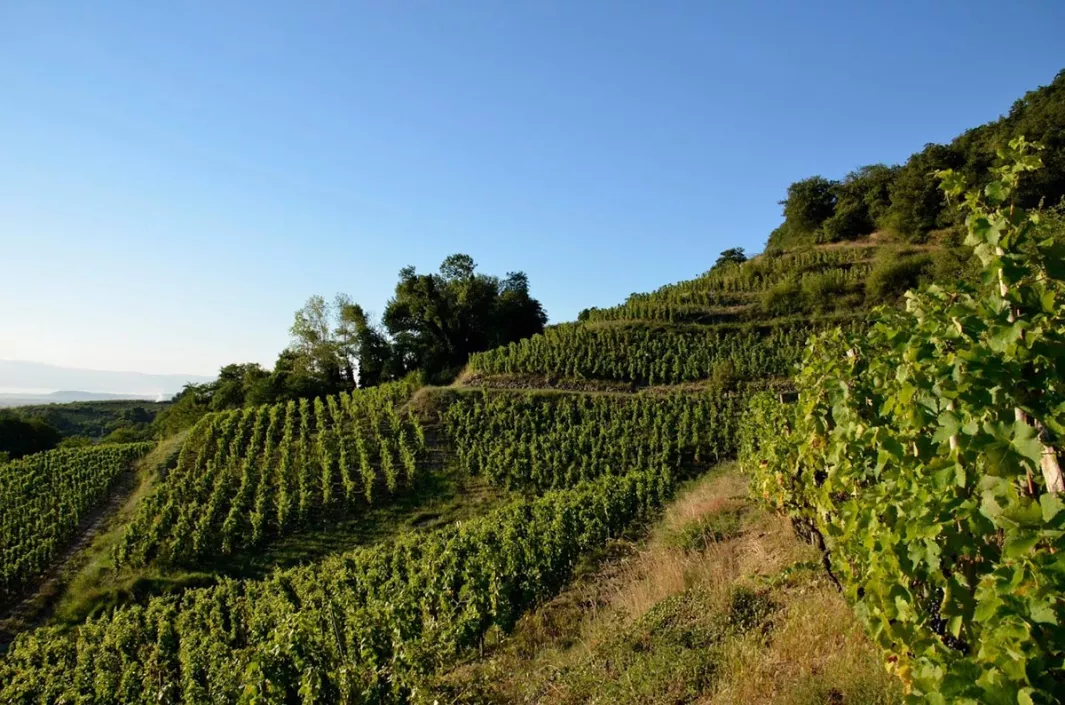
Tell us a bit about your upbringing/life in the States.
I was born and raised in Houston, Texas, the 6th out of 7 children in an idiosyncratic, very creative, somewhat rebellious family. Although we were not a family of financial means, we were taught cultural awareness through our parents from an early age. My mom studied abroad in the 60’s, and my parents and older siblings lived in Europe for my dad’s career in the oil production industry before I was born.
My Dad, an intelligent, daring man, spent his career working lengthy, blue-collar projects all over the world. He hopped around from continent to continent on work assignments and always came back from his trips with these daredevil, Indiana Jones style tales from far off lands. My mom was a self-taught multilinguist, French being one of her favorite languages, and she would write us notes and teach us songs in French, as well as in Spanish and Italian. She also was an adventurous cook and mastered recipes from all corners of the globe.
Cooking became our thing, a special bonding moment for me with her, and also a form of culinary travel from our kitchen in the Houston suburbs. Growing up in this environment, it was inevitable that I would someday want to leave and check out the big, beautiful world for myself. So as a teenager, I started calculating ways to save money and travel.
Tell us about your first time visiting France.
I was 19 and studying filmmaking and French at the University of Texas. Jean Luc Godard and Amélie Poulain were my cultural icons. So when I saw a flyer on campus for unbeatable winter fares to Europe, it was a no-brainer. I convinced my sister and our best friend to come along and off we went to London, Paris, and Milan. It was my first time leaving the US, and Paris was everything I expected and more: the language, the architecture, the baguettes, the wine -- all of it captured my senses and my imagination. Even in the grey, bleak dead of winter, sleeping in a drafty hostel dorm, I immediately fell under Paris’ charm.
What inspired you to ultimately move to France?
This is a funny story. After graduating from college, I landed a job as an English teaching assistant in Lyon and found a small apartment for rent on a houseboat on the Saône river. It was my second time in France and I was ecstatic for this new chapter of my life, except due to various reasons, it devolved into a series of calamities. I returned to Houston earlier than expected, vowing to never live in France again… until several years later while working as a sommelier at a wine bar in San Francisco, I met a charming French man who had come to California to work the harvest at a nearby winery. We became fast friends, then fell in love, and after several months of long distance dating, I cautiously decided to give France another try. You can’t fight fate, you know?
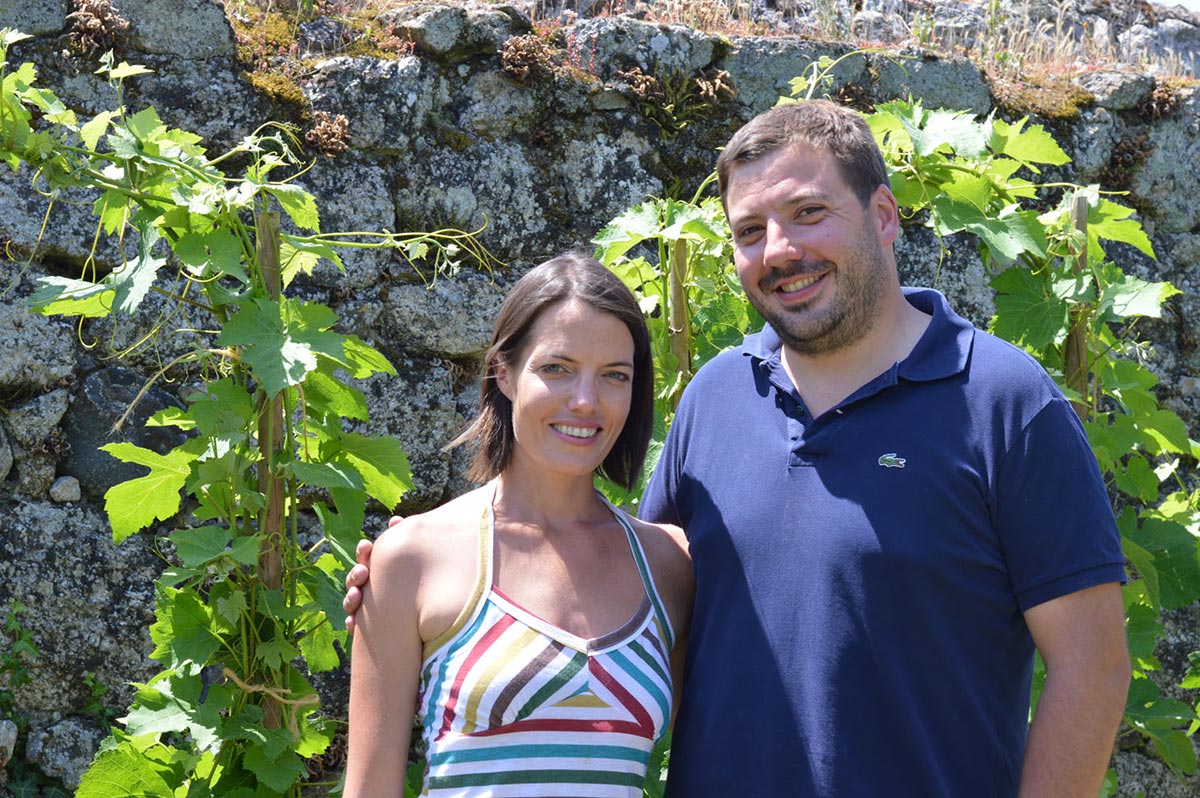
© Cecillon Wines
How did you feel within the first few months of expat life?
The first few months were very carefree. It was summer and I was just living in the moment. I discovered and welcomed the slow pace of France in the summer -- enjoying the great outdoors, eating leisurely meals, and drinking phenomenal wine.
How did you go about building a community for yourself in France?
It’s happened organically and through different avenues. I feel like my community is a vibrant patchwork of individuals that has slowly yet steadily been assembled. It is made up of Julien’s family and friends who have taken me in as their own, other expats I’ve met while moonlighting as a tour guide and English teacher, like-minded wine industry professionals that were at first colleagues and are now close friends, and of course, fellow moms who, like me, are on a quest for solidarity, sanity, and sometimes a glass of wine.
Tell us a bit about your past winemaking experience.
My first winery job was at a colossal winery in the Marlborough region of New Zealand. I had a work-holiday visa, the drive to work in wine, and no prior experience (the latter wasn’t relevant). I was hired as part of the production team during harvest alongside 60 other interns, most of whom had years of wine education and experience under their belts and who became a massive source of inspiration to me. They motivated me to ride the wine wave, so after working in New Zealand, I headed over to California, to work the crush as an assistant lab technician at a French-owned winery. When that was over, I started thinking seriously about making a career for myself in wine. At the time, it made the most sense for me to take some sommelier courses, move to San Francisco, and work on the retail and restaurant side of things. I didn’t have a set plan, just wanted to soak up as much knowledge as my brain and taste buds would allow.
What inspired you and Julien to create your own project?
Something that has always fascinated me about wine was the fact that it is produced nearly everywhere in the world, is ever-changing, and represents the land, and even the people, from where it comes.The idea of making something so mysterious, evocative, and expansive as wine became incredibly appealing to Julien and me. In 2012, after we both had accrued a few years of production and vineyard work behind us -- and perhaps more importantly, as we both tend to be idealists -- producing our own wine seemed like the logical next step. So we followed our intuition and went for it.
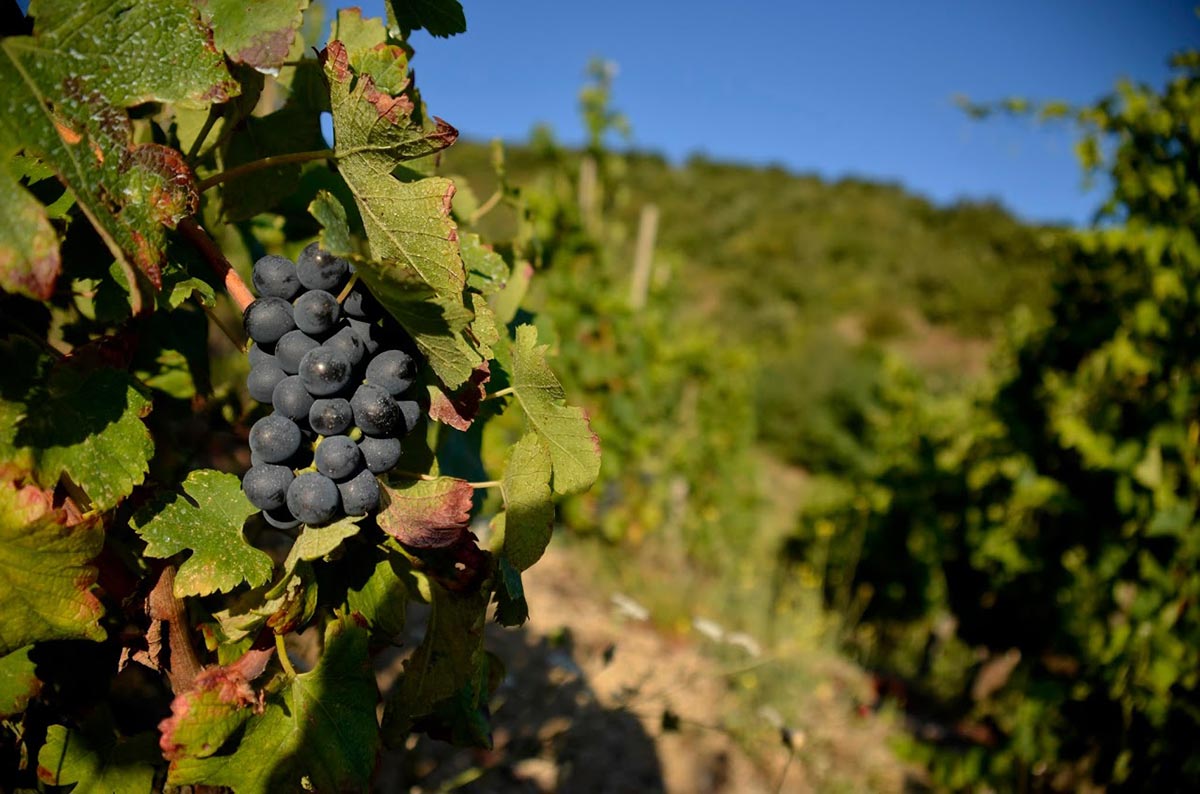
© Cecillon Wines
What is your role at the winery?
Building a company with your spouse is definitely a balancing act, and sometimes you fall off of the wire. It’s been through trial and error that Julien and I have learned how to complement each other’s strengths and weaknesses. We do make a lot of long and short-term management decisions together, but have otherwise found our niches in the day-to-day activities. Growing grapes and literally seeing the fruit of your labor resonates the most with me, and that’s where I’m strongest, so you’ll usually find me in the vines, along with working 100% on my personal wine, L’Etrangère.
Tell us a bit about your winemaking philosophy.
In short, you need good grapes to make good wine. By this, I mean the vines should be healthy, well-maintained, and preferably organic. Essentially, the more work you do in the vineyards, during the growing season, the less you will need to intervene in the cellar. I also believe that wine should be an expression of its terroir: the soil, the climate, and geographic elements, for example. Terroir is what makes wine so compelling because you have these natural environmental influences which translate into nuanced aromas, textures, and flavors in the bottle, allowing the wine to be a pure interpretation of the place it’s from.
Tell us a bit about L’etrangère.
It’s still a bit surreal. The wine came about as a form of self-expression for me. Julien and I started making wine together in 2012, working side by side, and when we had twins in 2015, the production continued to grow and I was not as involved as before. In early 2018, when I was able to get back to work more seriously, I really felt a creative drive and a need to have my own independent sphere within the company, as well as working with Julien on our traditional cuvées. As a result, I took over this plot in March 2018. It’s 100% organic Syrah manually worked by me, and it's.called L’Etrangère (the foreign woman) for the obvious reason that I’m an American woman in France, but also as a nod to being divided between two countries, and sometimes feeling like a foreigner in both.
What's the story behind the label?
Although this is my first wine, the name of the cuvée is ‘Number 7’. I come from a family of seven kids, I grew up in Houston, where the zip code and area code both begin with 7, and I now live in Ardèche, with the department number being 07. I found it fitting to include it on my label, as it represents my ties to my family in Texas, as well as in France. I do paper collages in my free time, and the image on here is a collage I created expressly for the label. It symbolizes me and all of the fragments of my past that have come together to form who I am now. It’s a bit rough around the edges to make room for new events and experiences.
Tell us a bit about your home life. What is it like living in a bilingual/multicultural household?
Well, at home we speak both French and English. I’ve always only spoken in English to our daughters, and Julien only in French. However, between Julien and I, we speak both languages to each other, depending on our moods. (Have you ever tried arguing in another language?!) Sometimes our girls, who are now 4, will correct our accents, which is pretty comical. Otherwise, it’s just our way of life, and I don’t give it too much thought… except when we're out in public and are the subject of confused stares.
What do you love most about life in France?
I love the reverence that the French place on food and wine. It’s incomparable to anywhere else. I used to joke that French people start planning their dinners before they’ve started lunch. Now that I do it myself, I see it as totally justified. I also find the diversity in the cuisine, landscapes, and lifestyles among the different regions in France to be remarkable and rightly celebrated.
What do you miss most about the United States?
Family, friends, and decent Tex-Mex. It took me 3 years to find jalapeno peppers in France. I now have a few sources, but I can’t disclose out of concern they might run out of stock.
What are some of the pros/cons of living in rural France as opposed to Paris?
I’ve never lived in Paris, so I cannot speak on that, but I do love the simplicity of rural France and can’t imagine living in a big city again. It’s very bucolic here. We’re surrounded by hills draped in grapevines, apricot orchards, and the Rhône river. It’s an outdoor enthusiast’s dream. That said, it can take some time to adjust to a quiet life if you’re coming from a cosmopolitan city with endless choices of restaurants, shopping, and museums.
Pro : You run into everyone you know at the farmer’s market.
Con: You run into everyone you know at the farmer’s market.
What is a piece (or few) of advice you would give to someone considering moving to France?
It’s an extraordinary place to live with a rich history, vibrant traditions, and a dynamic way of life, and in order to fully integrate and feel ‘at home’ in France, it’s essential to learn the language, not only to adapt and communicate, but also to better understand the culture. And finally, before moving here, one should know there are a few things the French take very seriously : their paperwork, their gastronomy, and their holidays.
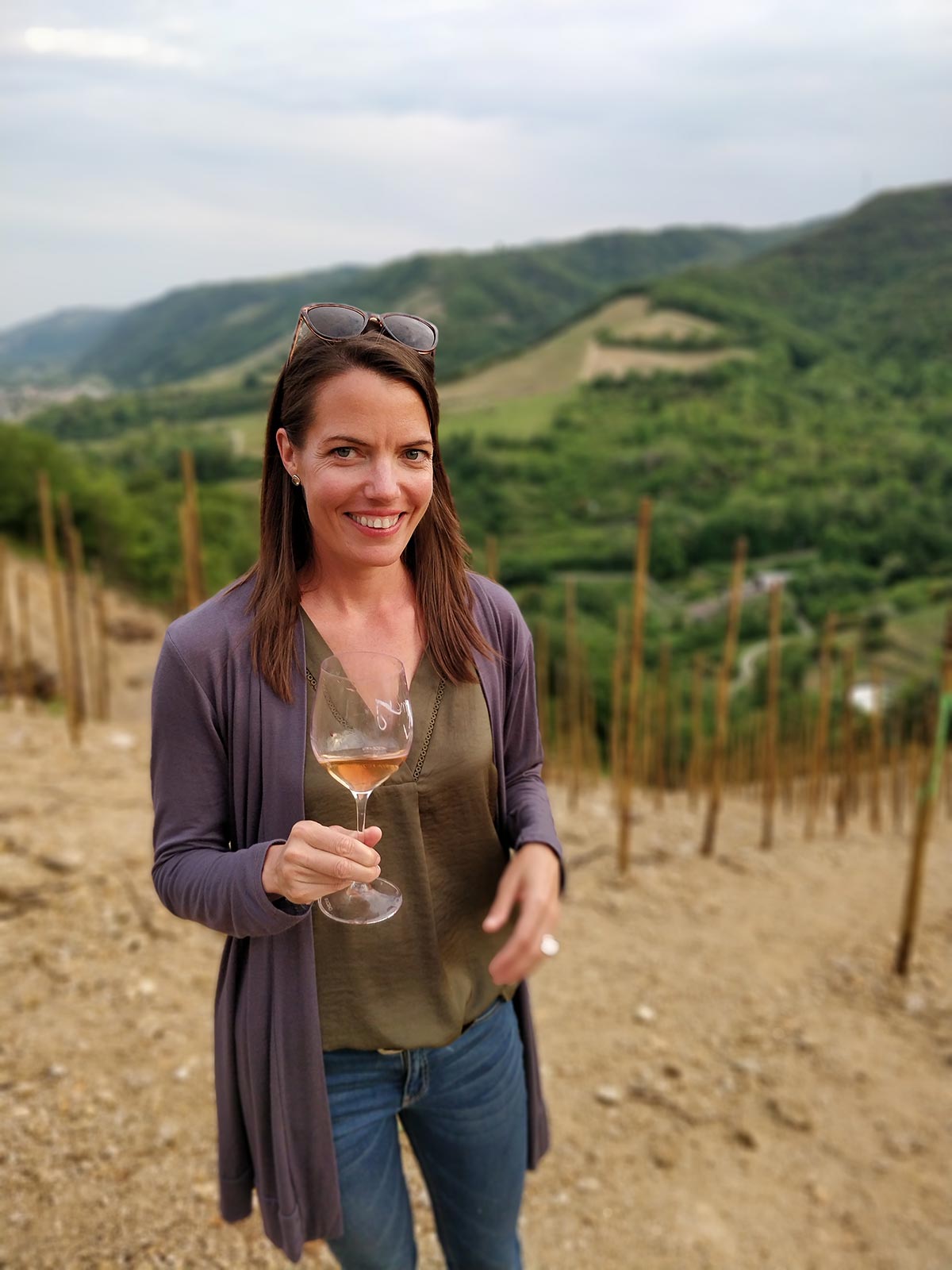
© Cecillon Wines

